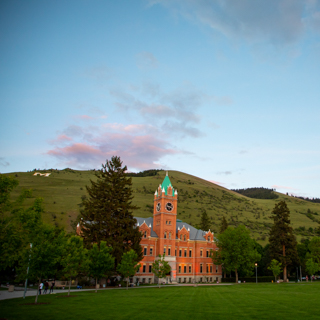UM Regents Professors
To Nominate a Regents Professor
- To Submit- 2023 Regent Professor Nominations
- The Provost distributes a call for nominations for the designation of Regents Professor to campus.
- Nominations will be submitted to the Dean of the nominated faculty member's college or school.
- Nominations may come from a variety of sources, including students, members of the University faculty or the Dean, who will be responsible for compiling a portfolio in support of the nomination(s) within his/her school/college.
- Each portfolio submitted by the Dean must contain:
- the letter of nomination from the nominator,
- a detailed letter of support from the Dean that outlines how the candidate meets the criteria,
- and a complete CV of the nominated faculty member.
- The portfolio may also contain letters of support that support the nomination and attest to the quality and breadth of their impact within and beyond UM. These letters may be written by peers or others who can attest to their contributions to the field.
The Dean submits his/her nomination portfolio(s) to the Provost by the deadline stated in the call for nominations. The Provost will then distribute the nominations to the Regents' Professor Selection Committee.
The committee will consist of 5 or more Regents' Professors and 4 senior faculty members selected by the Provost. All Regents' Professors will have standing on the committee and may participate in the selection process.
The committee will evaluate the portfolios of each of the deans' nominees and may request additional information as necessary. The committee shall consider the distinctive impact and demonstrated excellence of the nominee(s) in the categories of teaching, scholarship and service as well as his/her record of commitment to the University. By late spring semester of even years, the committee will submit two candidates to the Provost for further consideration. The recommendations of the committee will be advisory to the Provost.
Based on the recommendations of the Regents' Professor Selection Committee, the Provost may submit up to 2 nominees to the President.
The President will submit the nominees that she or he deems suitably distinguished to hold the Regents' Professor designation to the Board of Regents for final consideration and approval.
The Board of Regents reviews and approves nominations in executive session at one BOR meeting, and the public approval and celebration occurs at the subsequent Board of Regents meeting.
Upon approval of the Board of Regents, faculty members conferred the title of Regents' Professor shall enjoy all rights and privileges pertaining thereto, including any adjustment to the base salary.
UM Regents Professors
The title of Regents Professor is awarded to a very select group of full-time faculty with an outstanding record of commitment to the University; who have demonstrated true excellence in all three areas of University expectation: instruction, scholarship, and service; and who have demonstrated distinctive impact through their work as a faculty member. (See UM policy 360).
Cory Cleveland (2023)
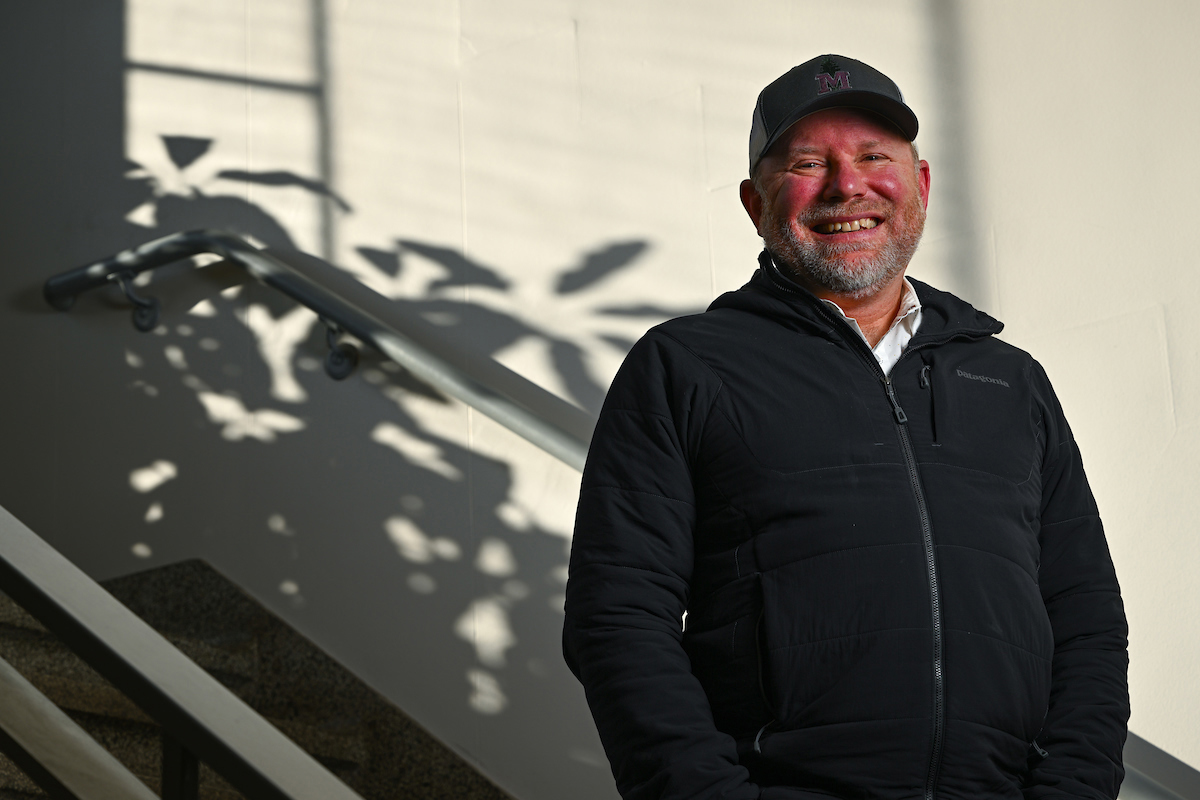
Cory Cleveland regents professor of Ecology, has been called one of the top scientists this century in the field of ecosystem science. His work has been cited by researchers around the world more than 29,000 times. Before joining the UM family, Cory earned his Ph.D. from the University of Colorado, worked as a researcher with the CU Institute of Arctic & Alpine Research for six years. Cory joined the UM Department of Ecosystem & Conservation Sciences in 2007, and in 2011 became a charter faculty member of UM’s Systems Ecology graduate program. He and his students have published more than 110 papers in leading national and international scientific publications. One paper, “Nitrogen cycles: past, present and future,” is described by nominators as something of a classic, as it alone has been cited nearly 6,000 times. In 2018, Cleveland became the first Montanan ever named a Fellow of the Ecological Society of America. He also has earned more than $5 million in competitive research grants – mostly from the National Science Foundation. Additionally, Cleveland has championed graduate education at UM, mentoring 14 of his own graduate students and serving on more than 40 graduate committees in departments across campus. His nominators wrote that many of those trainees are listed as first authors on papers they publish with Cleveland and “perhaps the strongest signal of this outstanding graduate and research training is that all his graduate students have gone on to careers in science and natural resources, with six in tenure-track positions in academia across the U.S.”
Douglas J. Emlen (2020)
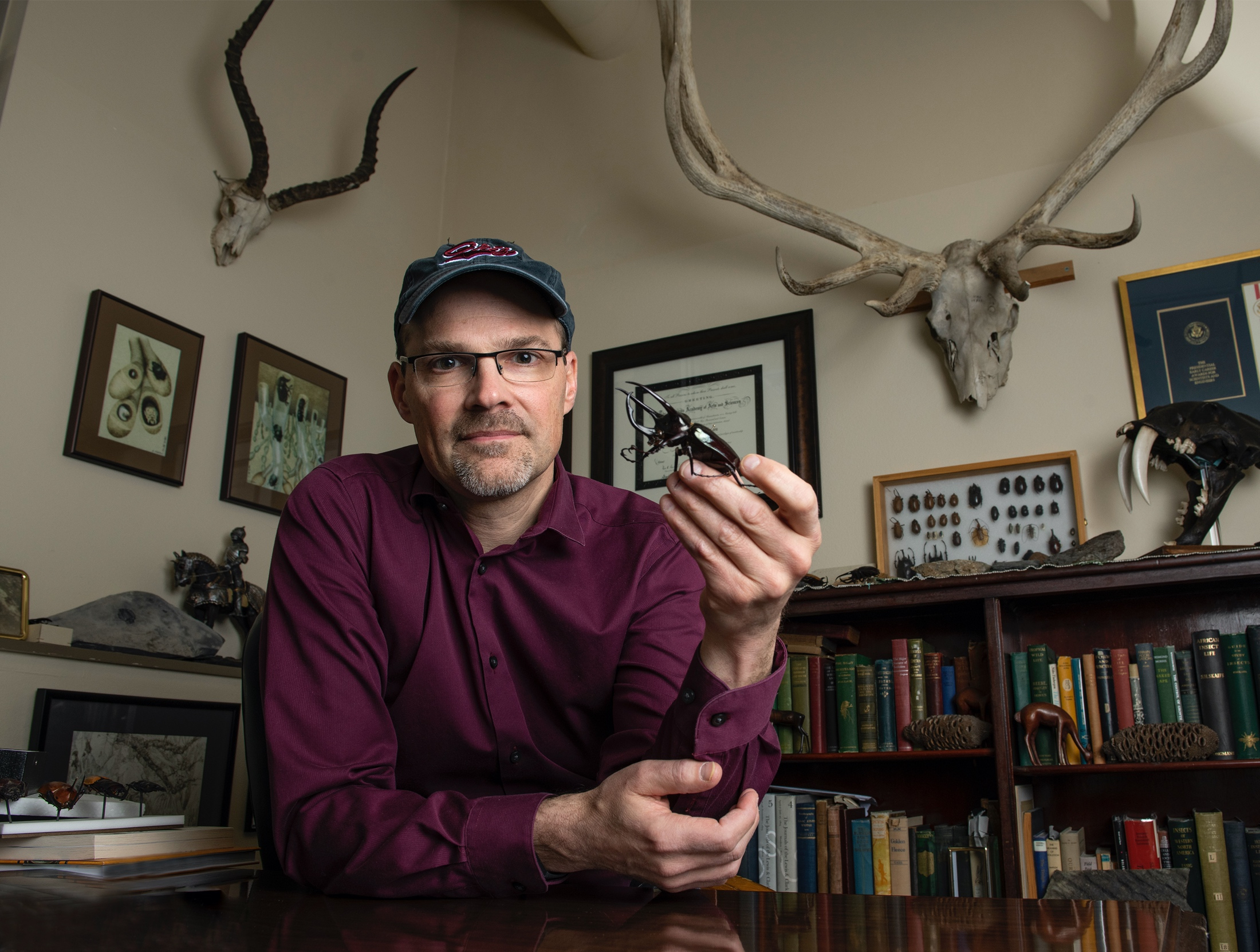
Douglas J. Emlen Regents Professor of Biology, Division of Biological Sciences. Studied at Cornell University (B.A. 1989), Princeton University (Ph. D. 1994), and Duke University (Postdoctoral Research Fellow 1994-1997), before joining the faculty at the University of Montana where he is a full professor and recently served as director of Ecology and Evolution, one of UM’s three “Programs of National Distinction.” Emlen’s courses cover genetics, evolution, and animal behavior, and his research focuses on the development and evolution of extreme animal weapons, in particular the horns of scarab beetles. He is the first scholar from any Montana institution to be elected to the American Academy of Arts and Sciences (2016) and was the first Montanan to receive the U.S. Presidential Early Career Award in Science and Engineering (2002). Emlen has earned more than $3.5 million in multiple research awards from the National Science Foundation, including their five-year CAREER award, as well as a Young Investigator Prize and the E. O. Wilson Naturalist Award from the American Society of Naturalists. In 2014 he was awarded UM’s Distinguished Teaching Award, and in 2015 the Carnegie/CASE Professor of the Year Award for the State of Montana. His book Animal Weapons: The Evolution of Battle (Henry Holt, 2014) won the Phi Beta Kappa science book of the year award in 2015, and his textbook Evolution: Making Sense of Life (co-authored with award-winning journalist Carl Zimmer, Macmillan Publishing, 3rd edition 2020), is presently adopted by more than 250 universities and colleges. His research has been featured in outlets including The New York Times, National Public Radio’s Fresh Air and Science Friday, and YouTube’s SciShow and MeatEater. He recently starred in documentaries about his work for the BBC (Nature’s Wildest Weapons) and NOVA (Extreme Animal Weapons, now available on Netflix), and his first narrative nonfiction book for middle school readers (Beetle Battles: One Scientist's Journey of Adventure and Discovery, Roaring Brook/Macmillan) appeared on shelves in December, 2019.
Anna Prentiss (2018)
Anna Marie Prentiss is Regents Professor of Anthropology. She received her B.A. and M.A. degrees in anthropology from the University of South Florida and Ph.D. in archaeology from Simon Fraser University. Since arriving at the University of Montana in 1995 she has taught courses in cultural resources management, hunter-gatherer archaeology, stone tool technology, evolutionary theory, proposal preparation and research design, and the ancient history of the Americas with specializations in the northern Great Plains, Rocky Mountains, Pacific Northwest, and Arctic regions. She has mentored and chaired theses and dissertations of over 50 M.A. and six Ph.D. students with completed degrees. In 2003, she earned the Helen and Winston Cox Educational Excellence Award and in 2018 she was Visiting Scholar at the McDonald Institute for Archaeological Research, University of Cambridge.
Dr. Prentiss has been awarded multiple grants from the National Science Foundation and the National Endowment for the Humanities. Her research emphasizes the ecology of hunter-gatherer adaptations, the development of sedentary villages, the emergence of social inequality, and the evolution of ancient technology. She has published over 70 peer reviewed papers and seven books. She played a significant role in establishing the theoretical paradigm in archaeology known as cultural macroevolution and has brought rigor to the study of early complex societies. She has given invited lectures on origins of food production, early social complexity, colonial experiences of indigenous groups, and cultural evolutionary process at events including the UNESCO HEADS symposium on early food production in Puebla, Mexico, the Conference on Hunting and Gathering Societies in Vienna, Austria, the World Archaeological Congress in Kyoto, Japan, and the Dorothy Garrod Series at the University of Cambridge. In 2018, she was invited to join the research team “Lives of Bronze Age Women” at the Danish National Museum in Copenhagen, Denmark. She was named the William D. Lipe Visiting Scholar by the Department of Anthropology, Washington State University for 2019.
Professor Prentiss has served as editor of the SAA Archaeological Record, open-access magazine of the Society of American Archaeology (2013-2019). She sits on multiple editorial boards including American Antiquity, the leading journal of American archaeology and the book series, Interdisciplinary Evolution Research, from Springer. She remains an active peer reviewer for the National Science Foundation, various publishing houses, and many scholarly journals.
Anya Jabour (2016)
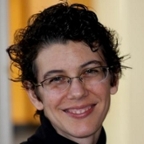
Anya Jabour is a Regents Professor of History at the University of Montana, where she has taught since 1996. Professor Jabour earned her B.A. from Oberlin College, her M.A. from Rice University, and her Ph.D. from Rice University. Anya Jabour is a professor in the History Department and a past co-director of the Women's and Gender Studies Program at the University of Montana. She teaches courses in U.S. women’s history, family history, and southern history as well as several upper-division writing courses. Professor Jabour was the 2001 recipient of the Helen and Winston Cox Award for Excellence in Teaching and the 2014 recipient of the Paul Lauren Undergraduate Research Faculty Mentor Award.
She has authored three books, Marriage in the Early Republic, Scarlett’s Sisters, and Topsy-Turvy, and has edited a collection on Major Problems in the History of American Families and Children and another on Family Values in the Old South, and has published numerous articles and essays. In 2013, she was named the University of Montana's Distinguished Scholar; in 2014 she received the George M. Dennison Presidential Faculty Award for Distinguished Accomplishment.
Professor Jabour is currently working on a biography of educator and reformer Sophonisba Preston Breckinridge (1866-1948), for which she received a summer stipend from the National Endowment for the Humanities. She also is a historical consultant for a forthcoming Montana PBS documentary about Butte author Mary MacLane and for a new PBS Civil War-era miniseries, "Mercy Street."
Ragan M. Callaway (2014)
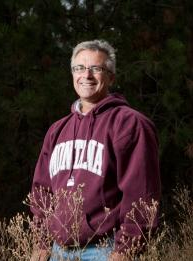
Ragan M. Callaway is Regents Professor of Ecology at the University of Montana. He earned his Ph.D. from the University of California, Santa Barbara in 1990. He joined the faculty of UM's Division of Biological Sciences in 1993, and is the recipient of numerous grants from the National Science Foundation, the Andrew W. Mellon Foundation, the U.S.D.A., the Murdock Foundation, and the National Geographic Research Foundation, to name a few. He was named AAAS Fellow in 2010. To date, the Callaway Lab at UM has graduated 10 Ph.D. students and has welcomed visiting researchers from around the world, including the Americas (Canada, Mexico, Chile) Europe (Scotland, Hungary, France, Switzerland, Germany, Spain) Asia (Turkey, China, the Republic of Georgia, India), and Australia.
Richard J. Bridges (2011)

Richard J. Bridges is a Regents Professor of Pharmacology and Toxicology at the University of Montana, where he has been on the faculty of the Skaggs School of Pharmacy since 1993. After completing undergraduate work in Biochemistry at the University of California at Davis, he received a Ph.D. in Biochemistry from Cornell Medical College in 1984 under the guidance of Dr. Alton Meister. Prior to relocating to Montana, he held postdoctoral and faculty positions at the University of California at Irvine. Research in the Bridges lab focuses on the molecular pharmacology of membrane transport proteins that regulate the movement of signaling molecules into and out of cells within the brain and spinal cord. Emerging evidence suggests that these systems, as well as the novel drugs that regulate their activities, are relevant to a wide range of CNS diseases and insults, including: ALS, traumatic injury, stroke, Alzheimer’s disease, brain tumors, viral infection, and drug addiction. Bridges’ publications include numerous primary research articles, topical scientific reviews and book chapters, as well as the book Excitatory Amino Acid Transmission in Health and Disease (Oxford Press, 2006). In addition to his own research activities, Bridges has played a key role as a program builder in the biomedical sciences at The University of Montana, serving as a the founding Director of the NIH Center of Biomedical Research Excellence in Structural & Functional Neuroscience (2000-2008) and a founding member of both the Montana BioScience Alliance (2004-2011) and the Montana Neuroscience Institute (1998-present).
Jakki Mohr (2008)
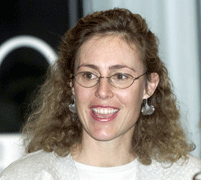
Jakki Mohr (Ph.D. University of Wisconsin-Madison) is the Regents Professor of Marketing and the Jeff & Martha Hamilton Distinguished Faculty Fellow at the University of Montana. An international expert and innovator in the field of marketing high-technology products and services, Mohr has achieved international acclaim for Marketing of High-Technology Products and Innovations (co-authored with S. Sengupta and S. Slater, with translations in Chinese, Portuguese, and Korean as well as European and India/SE Asia editions). Motivated by the desire to bring the promise of new technologies to solve social and global problems, she has provided training to companies and universities worldwide in strategic market planning to commercialize innovation. She has received numerous teaching awards, including the Outstanding Marketing Teacher Award (presented by the Academy of Marketing Science), the Carnegie Foundation CASE Professor of the Year Award, and the Most Inspirational Teacher of the Year Award at The University of Montana, as well as the Distinguished Scholar Award, the John Ruffatto Memorial Award and the Dennison Presidential Faculty Award for Distinguished Accomplishment. Professor Mohr served as a Fulbright Senior Specialist in Montevideo, Uruguay. Dr. Mohr's research has received national awards, and has been published in the Journal of Marketing, the Strategic Management Journal, the Journal of the Academy of Marketing Science, the Journal of Public Policy and Marketing, among others. In addition, in research sponsored by the Marketing Science Institute, she studies how companies use biomimicry (innovations inspired by nature, based on underlying biological mechanisms) to solve technical and engineering challenges, the basis of her TEDxSanDiego talk in 2011.
Steven W. Running (2007)
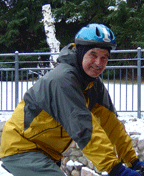
Steven W. Running received his Ph.D. in Forest Ecology from Colorado State University in 1979. He has been with the University of Montana since 1979, where he is a Regents Professor of Ecology. His primary research interest is the development of global and regional ecosystem biogeochemical models integrating remote sensing with bioclimatology and terrestrial ecology. He is a Team Member for the NASA Earth Observing System, Moderate Resolution Imaging Spectroradiometer, and is responsible for the EOS global terrestrial net primary production and evapotranspiration datasets. He has published over 240 scientific articles and two books. Dr. Running recently served on the standing Committee for Earth Studies of the National Research Council and on the federal Interagency Carbon Cycle Science Committee. He also served as a co-chair of the National Center for Atmospheric Research Community Climate System Model Land Working Group and as a member of the International Geosphere-Biosphere Program Executive Committee, the World Climate Research Program, and the Global Terrestrial Observing System. He currently serves on the advisory NASA Earth Science Subcommittee, and the NOAA Science Advisory Board Climate Working Group. Dr. Running shared the Nobel Peace Prize in 2007 as a chapter Lead Author for the 4th Assessment of the Intergovernmental Panel on Climate Change. Dr. Running is an elected Fellow of the American Geophysical Union and is designated a Highly Cited Researcher by the Institute for Scientific Information. In the popular press, his 2007 essay, "The 5 Stages of Climate Grief," has been widely quoted.
Fred W. Allendorf (2004)
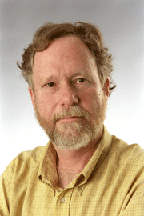
Fred Allendorf is a Regents Professor Emeritus of Biology at the University of Montana and a Professorial Research Fellow at Victoria University of Wellington in New Zealand. He was a postdoctoral scholar at the University of Aarhus in Denmark and at Nottingham University in England. He was also a Senior Fulbright Fellow at Victoria University of Wellington, and has held positions at the University of California Davis, the University of Oregon, the University of Minnesota, and the University of Western Australia. He is a Fellow of the American Association for the Advancement of Science (AAAS) and a past President of the American Genetic Association and also served as Director of the Population Biology Program of the National Science Foundation. Professor Allendorf has served on the editorial boards of Proceedings of the Royal Society, Conservation Biology, Molecular Ecology, Evolution, Conservation Genetics, Molecular Biology and Evolution, and the Journal of Heredity. His research focuses on the application of population and evolutionary genetics to problems in conservation biology. His book Conservation and the Genetics of Populations (2007), co-authored with Gordon Luikart, provides an understanding of how genetics can be used to conserve species threatened with extinction.
J. Martin Burke (2004)

J. Martin Burke is a Regents Professor of Law at the University of Montana where he has taught since 1977. Professor Burke earned his B.A. from Gonzaga University, his J.D. from The University of Montana School of Law, and his LL.M. in Taxation from New York University. Professor Burke served as the Dean of The University of Montana School of Law from 1988 to 1993 and has served as a visiting professor of law at Loyola University Law School (Los Angeles), New York University School of Law, University of Florida Levin College of Law, and University of Washington School of Law. Professor Burke has directed the University of Montana Law School's Annual Tax Institute since 1984. He has written extensively on federal tax law and policy and is co-author of a number of tax books, including Taxation of Individual Income, Ninth Edition (LexisNexis 2010), Understanding Federal Income Taxation, Third Edition (LexisNexis 2008) and Modern Estate Planning (LexisNexis 2002). From 1987 to 1992, he served as Co-Editor-in-Chief of The Review of Taxation of Individuals, a quarterly national tax journal. He has served as a member of the National Advisory Board of LexisNexis and currently serves on the Board of Advisors of the University of Florida Tax Review.
Professor Burke serves on the Council of Legal Education of American Bar Association (ABA), the accrediting body for U.S. law schools. Prior to being elected to membership on the Council of Legal Education, Professor Burke served as Chair of the ABA Accreditation Committee and Chair of the ABA Standards Review Committee. He has served as Chair and is currently a member of the Professionalism Committee of the State Bar of Montana. In 1994, Governor Marc Racicot appointed him to the Governor's Task Force to Renew Montana Government and he chaired the State Government Committee of the Task Force.
Professor Burke has received numerous teaching and service awards, including The University of Montana's Distinguished Teaching Award. He was the 1995 recipient of the Robert T. Pantzer Presidential Humanitarian Award for his contribution "to making the University a more humane and open learning environment."
William W. Woessner (2004)
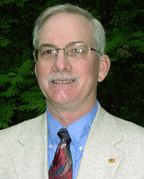
William W. Woessner has been teaching classes in applied hydrogeology at the University of Montana since 1981. He has taught courses in hydrogeology, advanced hydrogeology, groundwater modeling, applied groundwater modeling, surface water-groundwater interaction, and groundwater remediation. He received his B.A. in Geology from the College of Wooster, an M.S. in Geology from the University of Florida, an M.S. in Water Resources Management, and a Ph.D. in Geology (Hydrogeology with a minor in Civil and Environmental Engineering) from the University of Wisconsin-Madison. From 1978 to 1981 he served as an Assistant Research Professor at the Water Center of the Desert Research Institute, part of the Nevada System of Higher Education.
Dr. Woessner has published over 70 professional papers and has presented over 220 professional talks. He has served as the chair for over 70 graduate students. In 2005, Professor Woessner was awarded the Birdsall Dreiss Lectureship of the Hydrogeology Division of the Geological Society of America and in 2008 was presented the John Hem Excellence in Science and Engineering Award for his contributions to groundwater science by the Association of Ground Water Scientists and Engineers of the National Groundwater Association. Professor Woessner and his co-author, Mary P. Anderson, published Applied Groundwater Modeling in 1992. The text has been translated in to both Japanese and Chinese, and is recognized as a foundational text used worldwide. He was named a Fulbright Scholar in 2011 teaching and conducting research at two Universities in Graz, Austria. He has also been recently appointed the Associate Director of the Montana Water Center.
Professor Woessner's service to the University of Montana includes serving five terms on the Faculty Senate and its Executive Committee, appointments to numerous University and department level committees, serving as an undergraduate advisor for over 20 years, appointment as Acting Director of the Center for Riverine Science and Stream Re-naturalization, and serving as department chair.
Albert Borgmann (1996)
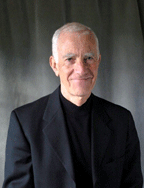
Albert Borgmann is a Regents Professor of Philosophy at the University of Montana, where he has taught since 1970. He specializes in philosophy of society and culture. Among his publications are Technology and the Character of Contemporary Life (University of Chicago Press, 1984), Crossing the Postmodern Divide (University of Chicago Press, 1992), Holding On to Reality: The Nature of Information at the Turn of the Millennium (University of Chicago Press, 1999), Power Failure: Christianity in the Culture of Technology (Brazos Press, 2003), and Real American Ethics (University of Chicago Press, 2006).
William Kittredge (1994)
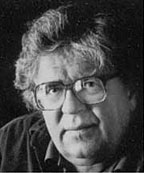
William Kittredge taught for the University of Montana for 29 years as a Professor of English and Creative Writing. Kittredge has held a Stegner Fellowship at Stanford and has received two fellowships from the National Endowment for the Arts as well as two Pacific Northwest Booksellers Association Awards for Excellence. He was winner of the Montana Governor's Award for the Arts, co-winner of the Montana Committee for the Humanities Award for Humanist of the Year, and winner of the PEN West Award for non-fiction book of the year. He was co-winner of the Neil Simon Award from American Playhouse for his work on the script for Heartland, co-editor with Annick Smith of The Last Best Place: A Montana Anthology, and co-producer of A River Runs Through It. In 1993, he was elected to the American Academy of Achievement, and, in 1994, he was co-winner of the National Endowment for the Humanities' Charles Frankel Award. Kittredge has published essays and articles in over 50 magazines, including Atlantic, Harper's, Esquire, Time, Newsweek, The Washington Post, and The New York Times. His books include two collections of short fiction, The Van Gogh Fields and Other Stories (1979) and We Are Not In This Together (1984); two collections of essays, Owning It All (1987) and Who Owns the West (1996); and a memoir Hole in the Sky (1992). His novel, The Willow Field, was published in 2006 by Alfred A. Knopf.
Paul G. Lauren (1991)

Paul Gordon Lauren is the first person to be named as a Regents Professor at the University of Montana. He is an internationally recognized teacher and scholar in the areas of diplomacy, international relations, and human rights and has published many articles, chapters, and 13 books. His publications include the widely-read Force and Statecraft, the Pulitzer Prize-nominated The Evolution of International Human Rights: Visions Seen, and the award-winning Power and Prejudice: The Politics and Diplomacy of Racial Discrimination. In his time at the University of Montana, Professor Lauren has received the Distinguished Scholar Award, the Most Inspirational Teacher Award, the Faculty Advisor Award, the Robert T. Pantzer Presidential Humanitarian Award, and the Award for Distinguished Service to International Education. He has also received the Carnegie Foundation CASE Professor of the Year Award and the Governor's Humanities Award. He served as the founding director of the Maureen and Mike Mansfield Center and as the Mansfield Professor of Ethics and Public Affairs. In addition, he has been a Senior Fulbright Scholar, a Senior Fulbright Specialist, a Woodrow Wilson Fellow, a Peace Fellow, a Rockefeller Foundation Humanities Fellow, a visiting professor at other universities in the United States and abroad, and a Distinguished Lecturer for the U.S. Department of State. Professor Lauren has presented lectures throughout the United States and around the world to a wide variety of audiences, including students and professors, the general public, activists, analysts, attorneys and judges, professional diplomats and military officers, legislators, and policy makers. He also has delivered invited addresses to the Nobel Peace Institute, the Smithsonian Institution, and the United Nations.
